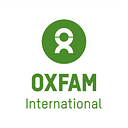The key to peace in the Sahel? Listen to the Sahelian people
By Evelien van Roemburg, Head of Oxfam’s EU office
Macron’s recent announcement to end France’s military operations in the Sahel after the political turmoil in Chad and Mali show, once again, that the Sahel region is being pulled into a perilous downward spiral while Europe stands on the sidelines. This benevolent attitude where, on the one hand, President Macron is leaping to legitimise the military power in Chad and on the other hand, is threatening another military power in Mali contradicts the spirit of the new EU Sahel Strategy ―Europe’s roadmap to peace and stability in the Sahel. Allowing authoritarian regimes to flourish and democratic processes to flounder neglects the needs of the Sahelian people. While the current focus on stabilisation is key to securing peace in a region that has seen its deadliest year in 2020, we also need to ask how we can secure peace in an ocean full of grievances and frustration without involving the very people experiencing these grievances themselves. Previous experience shows this is a mistake, and without a stock-taking of failed practices, we risk repeating them in a region that has already suffered from far too many. Instead, inclusive peace processes, involvement of people ―in particular young people and women― in local and centralized government and equality must be the cornerstones towards achieving peace and stability in the region.
Pocket money for peace
In the last decade military and security-driven approaches have dominated Europe’s response in the Sahel. This has come with a heavy price tag at two billion euros a year, four times the annual amount of humanitarian aid spent in the past four years. At the same time, Sahelian countries have boosted their defence and security spending in recent years to nearly a fifth of national budgets. This is often at the expense of social spending on education, justice, access to water or healthcare, and pushes the inequality gap even wider. Against this backdrop, human rights violations, enforced disappearances, extrajudicial executions, and violent crackdowns on peaceful protests to name a few, have been widely documented. The EU’s current approach simply reinforces the current situation by not tackling authoritarian governance structures.
Civil society: Reshaping the Sahel towards greater equality
European-funded military approaches which are backed by the G5 Sahel countries ―Burkina Faso, Mali, Chad, Mauritania and Niger― have profoundly undermined the trust between Sahelian governments and the Sahelian people. It has ripped apart the region’s social fabric. Rebuilding this social contract requires putting the struggle against inequalities at the heart of public action. Ensuring a “civilian and political leap forward” as defined in the EU’s Sahel Strategy also requires an amplified, transformed and inclusive civic space as well as one that is listened to by policy-makers. The Sahelian people, especially those affected by the conflict including young people and women, need to be given an active part in building a more peaceful future.
Is the EU up to the task?
Despite an expressed effort to move beyond a security-driven approach and towards a peace-building approach through including a principled humanitarian response, good governance, human rights and civic space in the EU Sahel Strategy, the EU’s lens seems to be set on security and short-term stabilisation without considering the cost of those policies. While the balancing act between security and development is a tricky one, we cannot let the illusion of stabilisation through military means dominate Europe’s and the international community’s agenda for the Sahel.
The EU has an opportunity to listen to the Sahelian people by ensuring that intercommunity dialogue, peace and protection are at the core of its approach for the region. Decisions that affect people must involve them. This people-centered approach would also entail shifting the power from the centralised State, which is not only limited in scope but often runs counter to the needs of the people, to a local level. During a recent public event organised by Oxfam between Sahelian organisations and EU policy-makers, Bernard Quintin (EEAS African Division Deputy Managing) said that “the heart of our strategy are the people and the Sahelian population. It appears in all paragraphs in the document”. Now it is time to put those words into action. Listen to citizen initiatives such as the “Coalition Citoyenne pour le Sahel” and place the people and their protection at the heart of the EU’s response in the Sahel.
